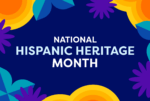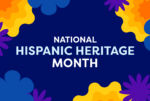Desi Wells is a student at Indiana Digital Learning School, and this is her perspective on why representation matters.
No one can ever effectively complete a task—without inspiration. This is why the average grade for high school students is a C. It’s why many students would rather be anywhere but school. There are certain topics that, no matter what you tell us, we simply see no use for; and sometimes that’s because we don’t see ourselves in it. I myself am an Honor Roll student, yet growing up, history was one of my worst subjects. It wasn’t until my sophomore year that history began to inspire me.
That year, I took a dual enrollment American History class. This meant that there was no standard textbook. Each week, the teacher would find different documents and websites for us. When she collected these resources, one of her top goals was to include diversity. In each unit, we learned how the unit affected all people, as well as specific people. That class was the most I ever learned about Black History in school. I got to learn about the first Black inventors, writers, scientists, and artists. I also learned much more about Native Americans and Spanish Americans. What I loved best was that each month, we had at least one research assignment. We could write about anything related to the topic, and that opened the gateway to allow me to learn more about my ancestors.
It is a shared sentiment among high school students that history, science, and English are all filled with “old, white guys”. That’s why these subjects are usually described as boring. But from my experience, when a diversity of authors, scientists, and historians are introduced, the students wake up. When students see themselves in textbooks and class lessons, school begins to feel of real importance. One reason that these subjects can seem so boring is that we continually learn about the same people. Almost every history class I took through elementary and middle school started with Christopher Columbus and ended with Albert Einstein. I have nothing against them, but I’m a bit tired of learning about them! There are plenty of Blacks, Latinos, and Native Americans who did just as much for this country, yet we learn about 5 or 6 of them at most. Let us learn something new and see just how diverse our world is.
When you see someone who was a genius growing up, it’s easy to think, “Of course, they broke history, but I can’t! I don’t have those same advantages.” But when we see people who look like us, had the same advantages as us, and even hated math like us, it’s easier to think, “Hey that could be me!” It allows us to really open our eyes to different career choices. It allows our imagination to soar. And it gives us the push we all need.
Now more than ever, students need answers and guidance to navigate issues of racial equity and social justice in our world. Stride One Voice provides flexible, leveled curriculum for students in grads K-12 to facilitate meaningful discussions where every voice can be heard.





























































































